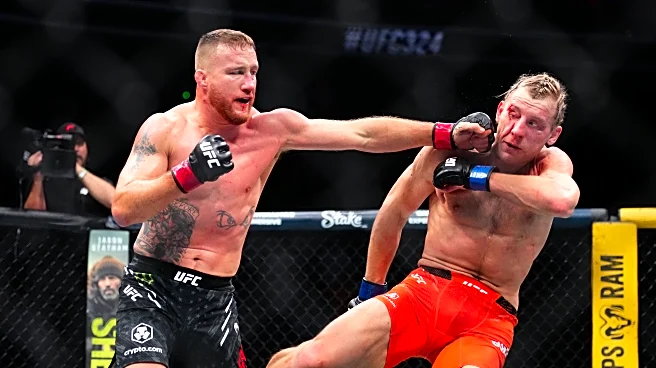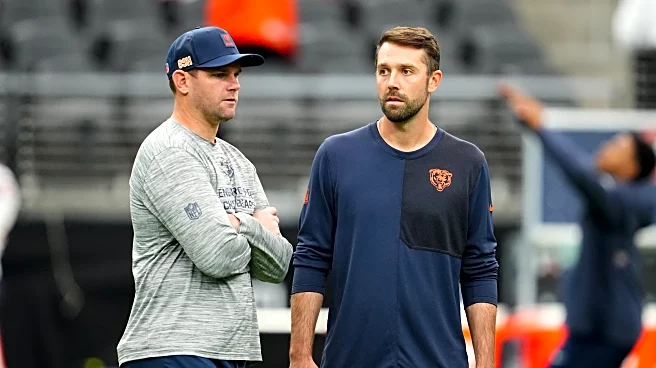What's Happening?
President Donald Trump has issued a pardon for Michelino Sunseri, a trail runner who briefly deviated from a designated path during his record-setting run up and down Grand Teton, the tallest peak in Wyoming's
Teton Range. Sunseri completed the challenging 13.3-mile run, which included a 7,000-foot elevation gain, in 2 hours, 50 minutes, and 50 seconds. However, during his descent, he took a two-minute detour off the trail to avoid casual hikers, which led to a misdemeanor conviction for violating national park regulations. Prior to the pardon, Sunseri had agreed to complete 60 hours of community service and a wilderness stewardship course as part of a deal with prosecutors. The pardon nullifies this agreement, and Sunseri's attorney, Ed Bushnell, noted bipartisan concerns over the criminalization of minor offenses in national parks.
Why It's Important?
The pardon highlights ongoing debates about the criminalization of minor infractions within national parks, which can have broader implications for public policy and legal standards. Sunseri's case underscores the tension between preserving natural environments and accommodating recreational activities. The decision to pardon Sunseri may influence future discussions on how to balance environmental protection with the rights of individuals engaging in outdoor sports. Additionally, the pardon reflects President Trump's approach to using executive powers, which may impact public perception and political discourse regarding the use of pardons for non-political cases.
What's Next?
While the pardon resolves Sunseri's legal issues, it may prompt further examination of national park regulations and enforcement practices. Stakeholders, including environmental groups and outdoor sports enthusiasts, might advocate for clearer guidelines and fairer treatment of minor offenses. The case could lead to discussions on potential reforms in national park policies to better accommodate recreational activities without compromising environmental integrity. Legal experts and policymakers may explore ways to address overcriminalization concerns, potentially influencing future legislative actions.
Beyond the Headlines
The pardon raises ethical questions about the use of executive power in non-political contexts and the precedent it sets for similar cases. It also highlights cultural dimensions of outdoor sports and the growing popularity of extreme athletic challenges, which can sometimes conflict with conservation efforts. The case may encourage dialogue on how society values and regulates natural spaces, balancing human activity with environmental stewardship.










